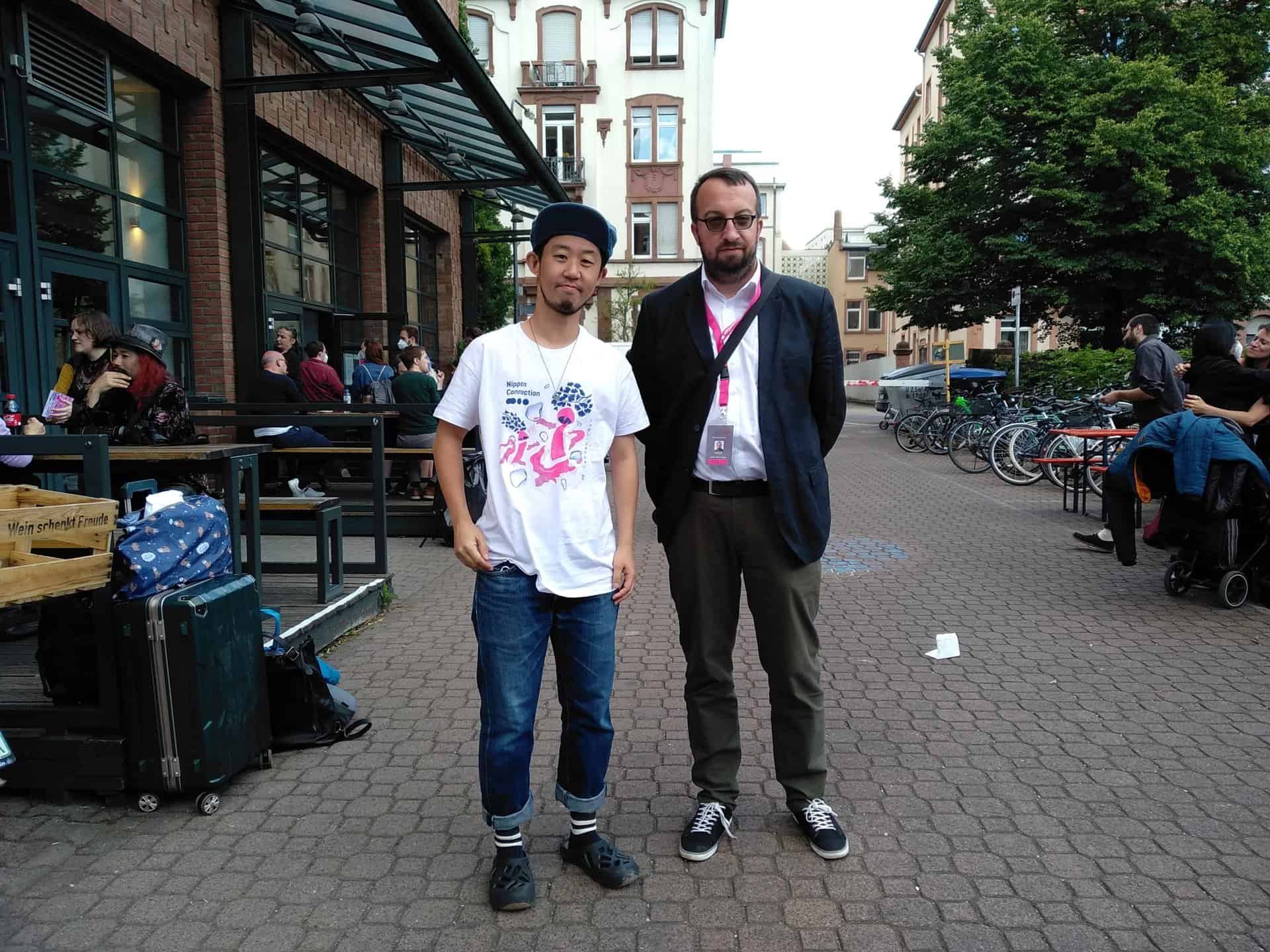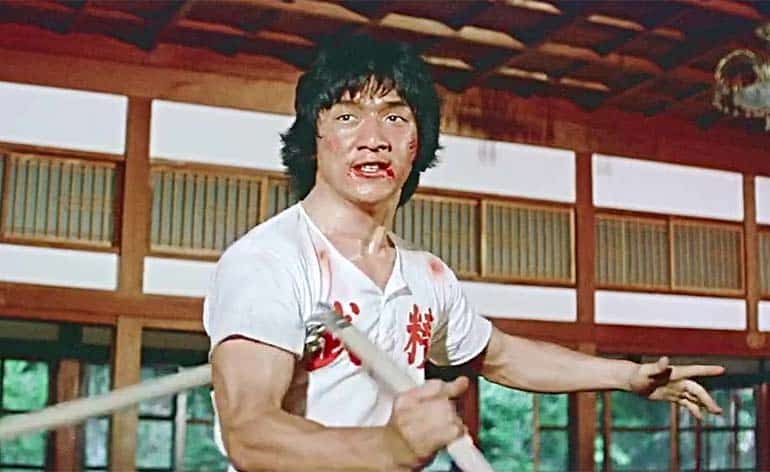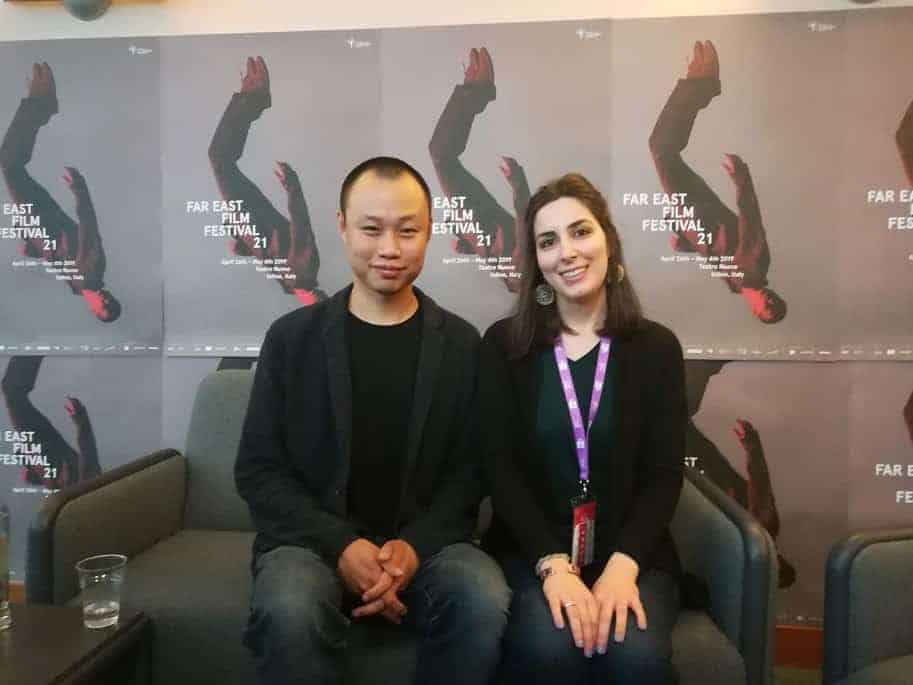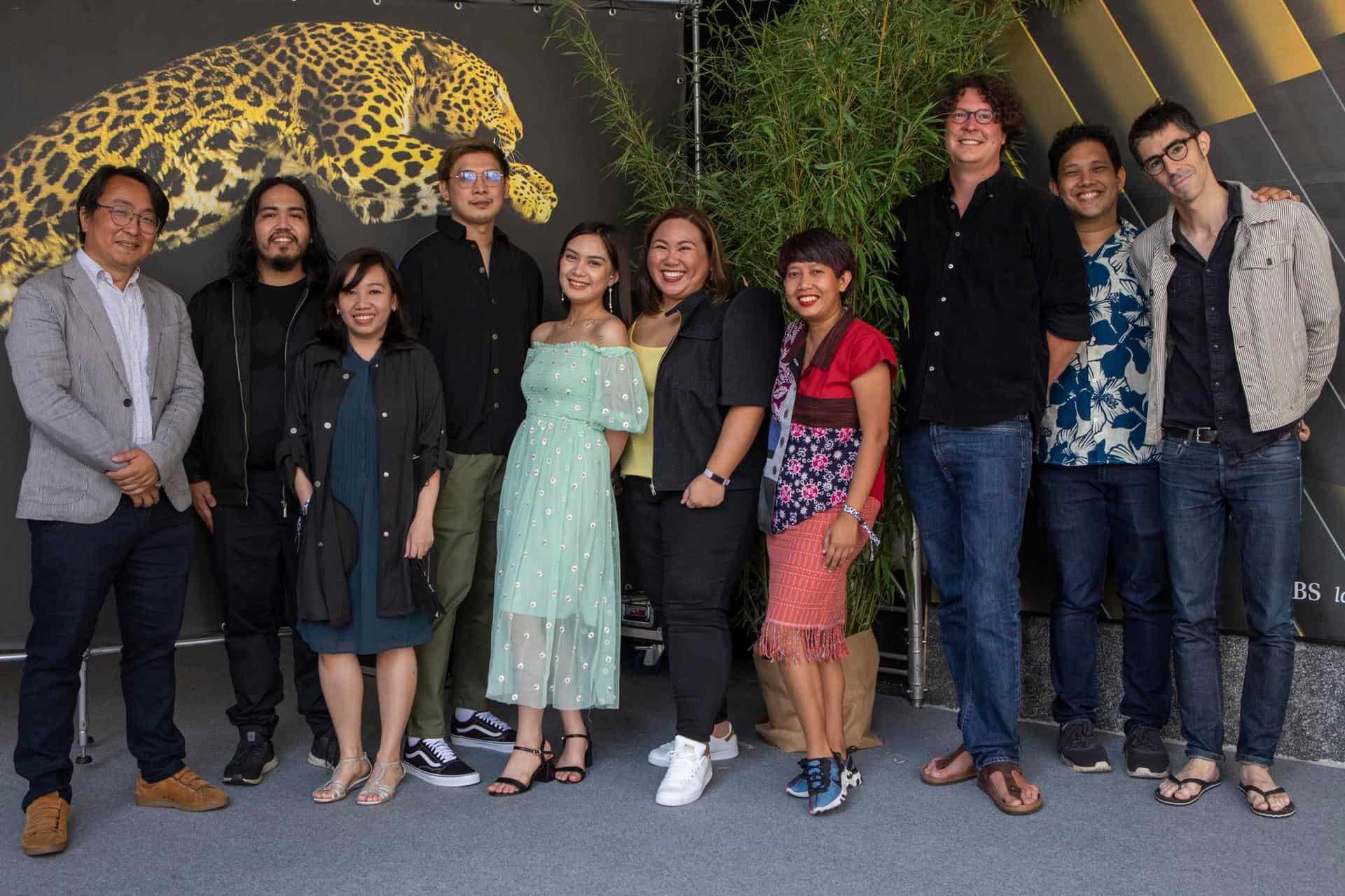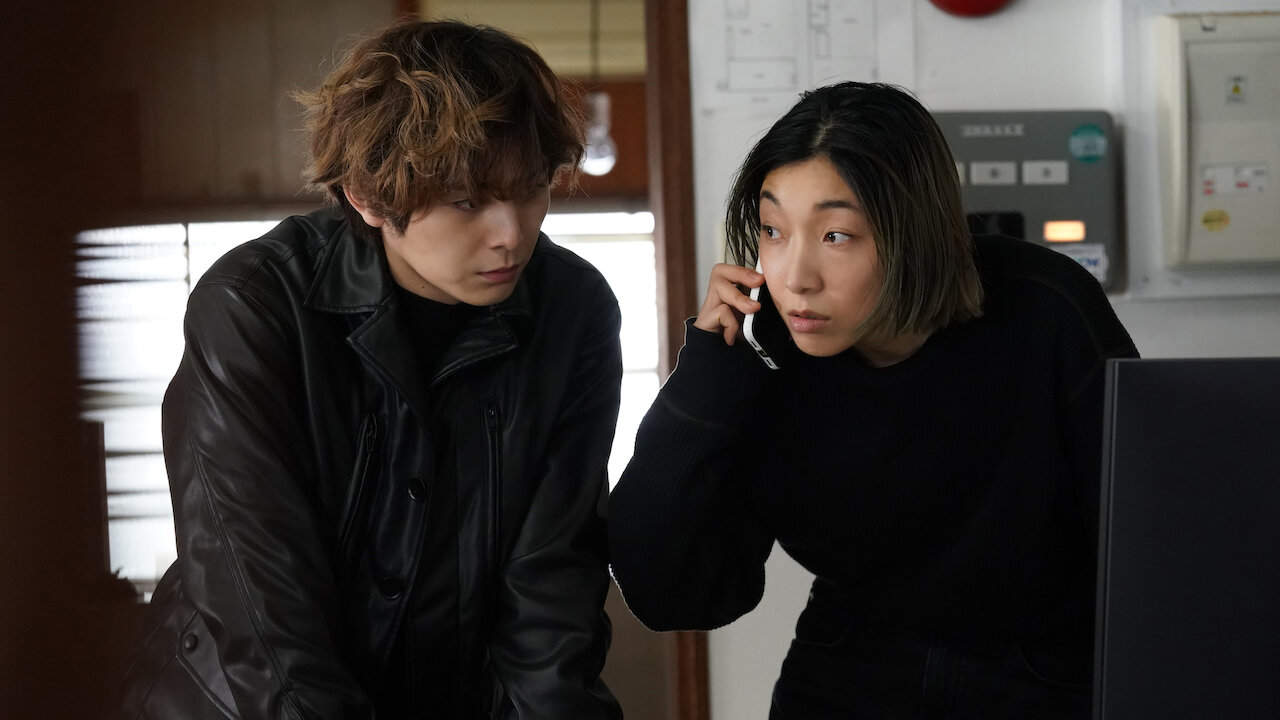Mina Kavani was born in Tehran . Brought up into an artistic family, and niece of the well-known film and play director Ali Raffi, she graduated from Conservatoire Supérieur National d'Art dramatique of Paris (CNSAD). Fascinated by acting from an early age, she started participating regularly at her uncle's rehearsals at the age of twelve. At sixteen she made her debut in the play “It Doesn't Snow in Egypt” under the direction of her uncle and on the stage of Tehran's City Theatre, inaugurating her carrier in Iran as an actress in theatre. She has collaborated with some of Iran's most crucial film and theatre directors. At the age of twenty-three, she moved back to Paris and entered the Conservatoire National Supérieur as part of the Jean Damien Barbin's class. In 2012, she voiced the role of Sahar in the Oscar winning film Argo directed by Ben Affleck. In the year 2013 she played the protagonist Sara in Spideh Farsi's film Red Rose. Due to the film containing some nudity, Kavani became the centre of threats made by the by the Iranian media, resulting in her exile. She received her political refugee status with the support of Isabelle Huppert and Bertrand Bonello who had praised her performance in the movie.
On the occasion of her film, “No Bears”, screening at Thessaloniki International Film Festival, we speak with her about the current situation in Iran, shooting a film without the director being present, playing a character whose story resembles her real life, her cooperation with Jafar Panahi, and many other topics.
“No Bears” screened at Thessaloniki International Film Festival
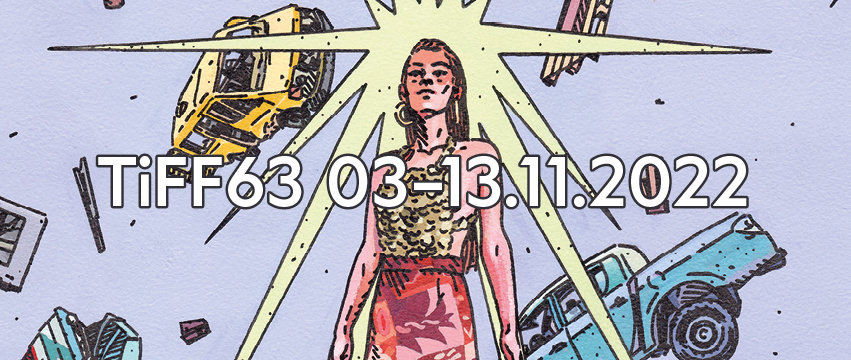
What is the situation in Iran now?
People continue protesting and the government continues killing them. It has been going on for more than 43 years and people are tired of this criminal regime and they cannot take this anymore, they cannot continue watching people die. I cannot tell what is going to happen in the future, but for now, this whole thing keeps happening, protests and killings.
Are you optimistic or pessimistic about the future?
I am optimistic because, for the first time, the world is finally seeing who they really are, the real image of this government. I have this impression that for the first time, our voice is heard internationally. This is very important, very positive but the negative side, for me at least, is that in order for this regime to fall, we need the support of the Westerners and unfortunately the world of politics is very dirty and you never know who is thinking about his own interest and who is thinking about the common good. Therefore, I cannot tell you definitely if we are going to be supported by Westerners, I don't know what will happen in six months or one year. The only thing I can tell you is that we are on a good path.
Do you think that the women protests that happened recently had a significant impact in that regard?
Yes! Because in 2022, you cannot kill a woman because she doesn't have her scarf on. In this world where the MeToo movement is everywhere, how can there be a place where women are killed for such reasons? It is such a contradiction. Of course it is important, because, first of all, the women's place in the world is different than what it was 10 or 20 years ago. And the fact that this revolution comes from women makes it even stronger. But you have to know that there are also men who are fighting in these protests. Men, women, children everybody is protesting, everybody wants this regime to change.
Do you have any news from Jafar Panahi, are you in contact with him?
I am in contact with his son, daughter and his wife, but not with him directly.

How was the whole experience of shooting “No Bears”, since Panahi was not there in person
In the beginning, it was frustrating. I think it would be difficult for any actor in the world to work when the director is not there. What was very impressive though, and the big lesson I took from Jafar Panahi is that he wasn't there physically, but he was really there. He was online with us, he would see the scenes and give us feedback afterwards, so he was so “in presence” with us, that little by little, I just forgot that he was not there. I even had this feeling all the time, I wanted to be good, to be excellent for him, because I knew that he was looking at me. He taught me that whatever your condition or your situation is, nothing can restrict your passion for art. He was doing his job.I am not hiding that from the beginning, I had a lot of emotions because I cannot go back to Iran and he cannot go out of Iran. But when I saw him working, the way he was directing his actors and all his team, through his extreme professionalism, he put me in a very concentrated state of mind too.
In the end, are you happy with your performance?
I don't think an actor can ever say that they are happy with their performance, it is difficult to say that. The only thing that I can tell you is that I am very happy and proud that I have worked with Jafar Panahi.
How is he with his actors?
I think he really has a universe in his mind and he knows exactly what he wants to get from his actors. What concerns me is that when I was Zara in the movie, and talked to him directly, I started crying. And he would tell me, “No Mina, you should be a strong woman, Zara is a strong woman, she wouldn't cry”. He is strict but not in a bad way. Like all the big directors in cinema, he knows exactly where he wants to get to and he is focused on it and very passionate about it. At the same time, he is listening to you, he wants to know what you propose.
How did the fact that your character's story is similar to yours feel?
To be honest with you, it impacted me very much. When I read this monologue of Zara for the first time, I started crying because it reminded me of all the years that I had. At exactly that moment, it was ten years since I started living in France and I was exactly like Zara, obsessed with the question of why we should leave our country. Who said that we are going to be much happier if we leave our country? That is what Zara is saying, that we left our country and our home looking for freedom and happiness. But now I am in another prison, away from my country. I am not happy here, I don't like the life I have because I am not in my home.
So you don't like the life you have now?
It is much more complicated. Today, after 12 years, it is difficult to say, because professionally, I am very happy and especially today, with what is happening in Iran, I just can be proud of what I have done. I am so proud I can be the voice of millions of people that cannot be heard, I can be a free actress, I can work with whomever I want, without censorship. I am so happy that I am at this point in my career but also, there is this very big sadness in me because I left my country and cannot return. It is very strange, because today, I am sitting in front of you and talking about this and I am proud because of what is happening in Iran. I am proud that I have chosen freedom, being in a free country, I am so proud that I did not accept to put a scarf on my head. However, immigration is not easy, especially being in exile is not easy. To go back to Zara, I did not have her life, I was not in jail, I don't have this husband that is sick etc. But the thing I understand deeply about her is that it has been ten years that she has been asking herself constantly, why should we leave our country? Who said that life here should be better than the other side of the border?
So you don't have regrets for what happened after “Red Rose”?
Of course not, that is exactly what I am telling you, I am just proud. When I see what is happening in Iran I just can say, ‘Wow!'. It means I was ahead of my peers, because already in that time I wanted to be free, showing the real image of a young Iranian woman through a movie. It took seven years to arrive at this point that I am telling you about. I had a very dark period too, when I wished to be next to my family and be in my country. I was so obsessed with this kind of phase that I even wrote a monologue about it that I am going to play in the theater soon. But at least, all of this is positive, even though it is difficult, it is very positive.

I am curious though. Despite all this oppression, the Iranian movie industry still thrives, with a lot, and very good movies coming out every year. How does that work?
Iran is a country of poetry, Iranian people are storytellers, they love art. It is really in our blood as much as a sensitivity for art. That is why our artists, like Jafar Panahi, like Mohammad Rasoulof and many others, whatever their condition is, they continue shooting movies and they are trying to find ways to make their movies all the time. They try to find ways to escape censorship and this is fabulous. Sometimes, I have this impression, that, whatever the limitations are, Iranian directors always find ways to make their movies. This is fantastic!
To go back to the film, this whole concept of a movie within a movie, did it make it harder for you?
No, exactly the opposite. As I told you, when I arrived at the place of the shooting, in the beginning I was sad, I was frustrated about the idea that Jafar Panahi was not there, but at the same time, because the movie was about that, especially in the scene I was talking to him directly, I used all this emotion in the way I acted. It inspired me a lot. Sometimes I ask myself, if Jafar really was there, would I be able to play the part with the same intensity? Because I was able to channel my frustration into my acting. It was very inspiring. There are things in life that are so surrealistic that even in the moment that you do it, you feel like you are doing something historical. I am working with a master of cinema and he is not there and we are communicating via Zoom and Whatsapp. Because I live in France, I never dreamt of working with an Iranian director.
I guess this question would be better addressed to him, but do you have any idea why he casted you?
I don't know… I have no idea. The only thing that I can tell you is that the big artists, the big directors, they are also big “sniffers”. They can sniff, they can feel, they have this huge talent that they do not even need to cast you, the majority of the time they just ask you to represent yourself and tell who you are. Jafar is one of them. Of course, in my representation I told him I live in France etc but I am sure that he could feel a thing that is beyond me. I am sure directors can feel when an actor can be the character they want.
How was your cooperation with Naider Saivar, who was actually on set?
Very good, Mr Naider Saivar, he is also a director, also a writer, and he has huge sensibility. I really had a great relationship with all the crew and especially Mr Saivar, because he is an artist too. He always worked next to Jafar Panahi, so he knows very well what he is looking for. He was in contact with Panahi all the time.
Can you tell us a bit more about your future plans?
Right now, I am working with a British director, Colin Teague for a series on web platforms in Abu Dhabi, until December. At the same time, I participate in a theater project which I already mentioned, and I have a feature movie that will be shot in Italy in March.



